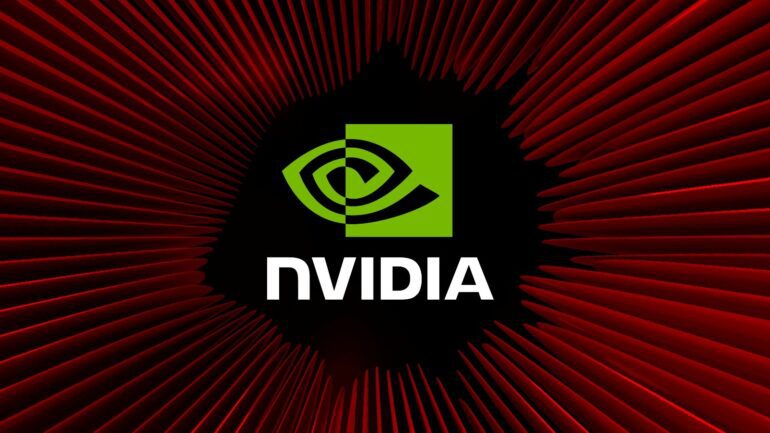TL;DR:
- The semiconductor chip industry is experiencing a new phase of growth, driven by increased chip capacity and domestic production needs.
- Nvidia’s projected revenue of $11 billion for the upcoming quarter has astonished analysts and investors, boosting the company’s stock by over 22%.
- Companies are rushing to order chips for generative AI projects after the release of Open AI’s ChatGPT, presenting a significant opportunity for Nvidia.
- Goldman Sachs predicts that Nvidia will maintain its industry standard position due to its competitive moat and the increasing demand for complex AI models.
- Nvidia anticipated the AI chip boom and is well-positioned in the market.
- The production of chips in the United States has declined, but efforts are underway to incentivize domestic chip manufacturing.
- Skeptics question whether U.S.-based efforts can keep up with the extraordinary demand for chips.
- The future of AI depends on the rapid development, advancement, and manufacturing of chips, giving a competitive advantage to companies already in the game.
Main AI News:
The semiconductor chip, once dominated by electronics and cars, has now entered a new stratospheric phase, capturing the attention of the business world. The ongoing pandemic-induced supply chain disruptions and national security concerns have underscored the urgency for increased chip capacity and domestic production.
In a stunning announcement, chip giant Nvidia revealed its projected revenue of $11 billion for the fiscal second quarter ending in July. This extraordinary figure has left analysts and investors astounded, resulting in a surge of over 22% in the company’s stock value. Vivek Arya, an analyst at Bank of America, described the projection as “remarkable,” exceeding analyst consensus by a staggering $4 billion. Meanwhile, Dan Ives of Wedbush Securities labeled it a “jaw-dropping” outlook, highlighting the burgeoning demand for AI in both enterprise and consumer domains. Joe Moore, an analyst at Morgan Stanley, emphasized Nvidia’s conservative approach to revenue projections during periods of growth, further highlighting the significance of this announcement.
If the demand for smartphone, automotive, and crypto processing power was considered significant, the forthcoming wave of orders for chips to support generative AI ambitions would be nothing short of monumental. Following the release of OpenAI’s ChatGPT, businesses are rushing to secure chips, which bodes exceptionally well for Nvidia.
Goldman Sachs analyst Toshiya Hari predicts that Nvidia will continue to maintain its industry-standard position, benefitting from its competitive advantage and the urgent need for customers to develop and deploy complex AI models. This positive outlook reflects the immense competition in the market.
While the AI chip boom has been anticipated, Nvidia recognized its potential well in advance. CEO Jensen Huang affirmed in 2020 that “the age of AI is in full throttle.” This forward-thinking approach has positioned Nvidia at the forefront of the industry.
A key question arises: Will the chips be manufactured in the United States? Currently, only 12% of semiconductor chips are produced domestically, a significant decline from the 37% figure in 1990. In response, President Joe Biden signed the bipartisan CHIPS and Science Act in 2022, incentivizing companies to establish chip manufacturing operations in the country. Prominent players such as Intel, Samsung, and Taiwan Semiconductor Manufacturing Company (TSMC) have already made investments in the United States. Notably, TSMC manufactures the advanced AI chips designed and sold by Nvidia. The White House acknowledged the crucial role of chips in maintaining America’s leadership in future industries, including artificial intelligence.
However, skeptics warn that the surging demand for chips may outpace the capacity of U.S.-based efforts to expand quickly. The ability to develop, advance, and manufacture chips will ultimately determine the future of AI, and companies that are already well-positioned in this domain will enjoy a significant advantage.
Conlcusion:
The significant growth and demand for semiconductor chips, particularly in the field of AI, indicate a prosperous market ahead. Nvidia’s impressive revenue projections and the scramble for chip orders reflect the immense potential for companies operating in this sector. As the industry standard, Nvidia is well-positioned to capitalize on the increasing complexity of AI models and maintain its competitive advantage. The push for domestic chip production, coupled with the skepticism surrounding capacity expansion, highlights the need for swift innovation and manufacturing capabilities. Overall, the future of the market relies on the ability to meet the escalating demand for chips, presenting ample opportunities for businesses to thrive in this evolving landscape.

